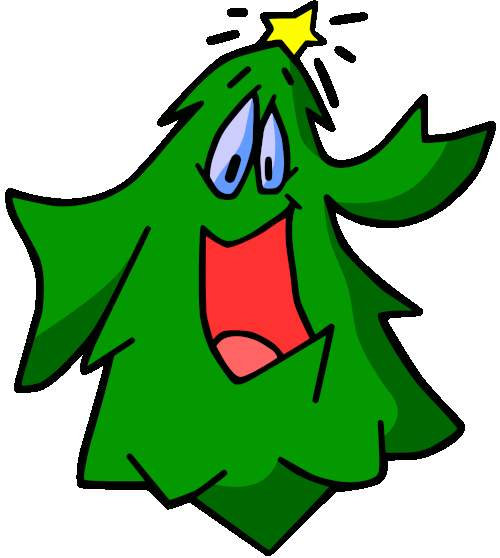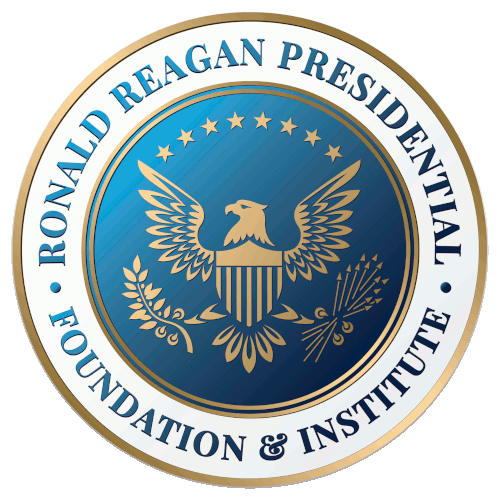CHRISTMAS:


https://www.google.com/maps/place/Brussels,+Belgium

| HOW TO SAY MERRY CHRISTMAS: | |
|---|---|
| In Dutch | Vrolijk Kerstfeest |
| In French | Joyeux Noel |
| In German | Frohe Weihnachten |

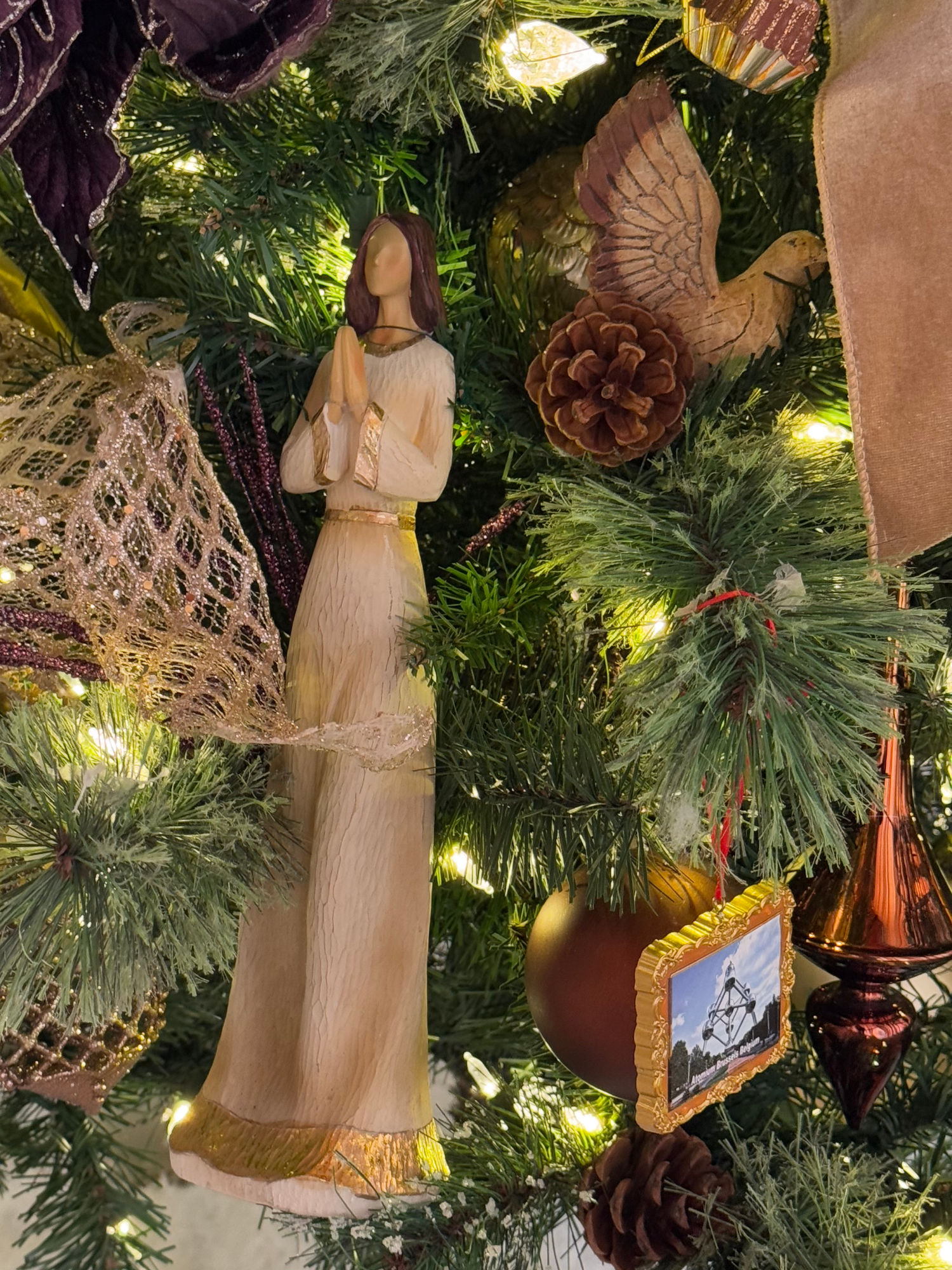
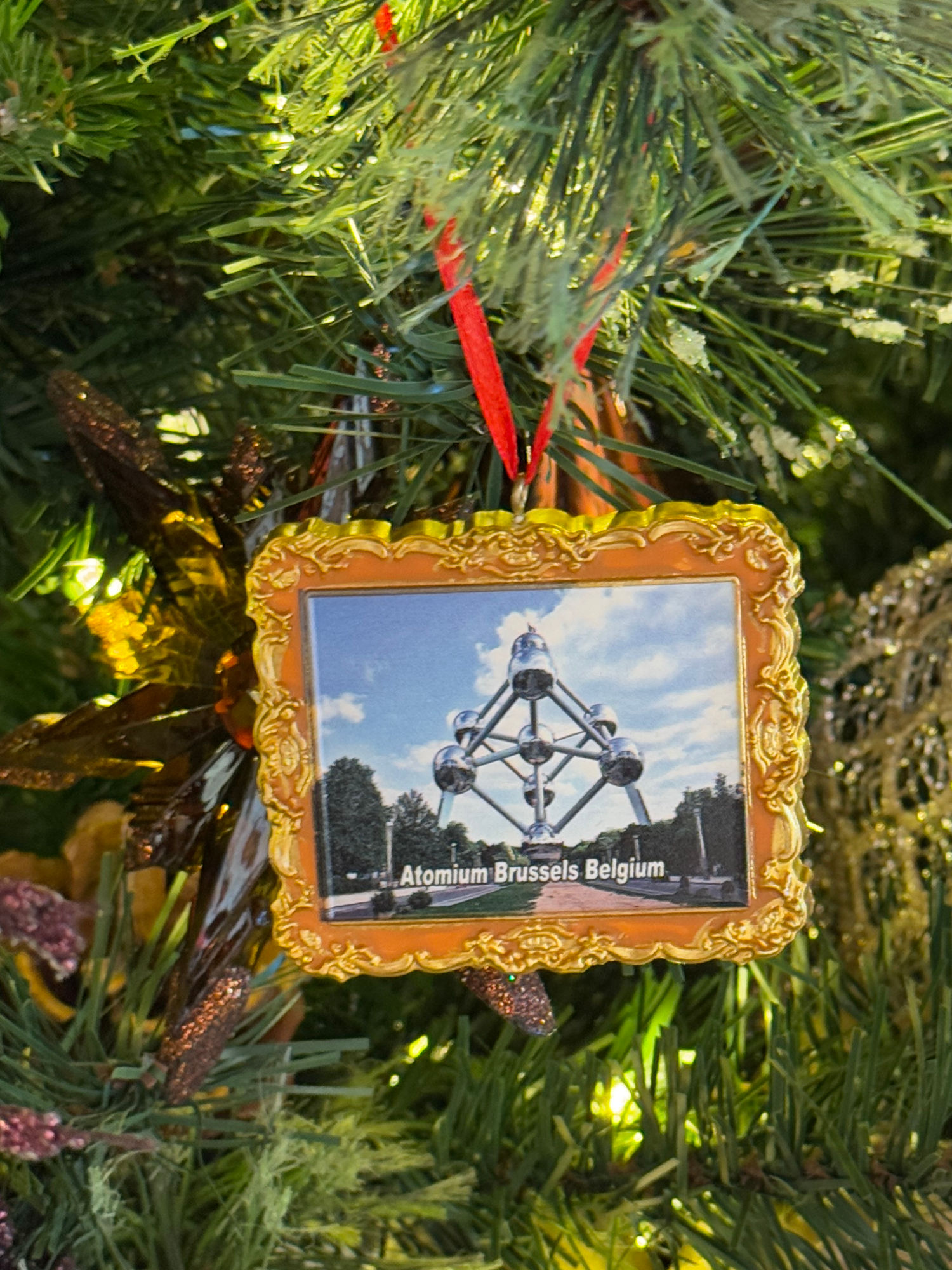

WIKIPEDIASaint Nicholas Day
In Belgium, they celebrate Sinterklaasfeest (Dutch-speaking) or la Saint-Nicolas (French-speaking) on the morning of 6 December.In the days leading up to 5 or 6 December (starting when Saint Nicholas has arrived by steamboat around mid-November), young children put their shoes in front of the chimneys and sing Sinterklaas songs. Often they put a carrot or some hay in their shoes, as a gift to St. Nicholas's horse. In recent years the horse has been named Schimmel or Amerigo in the Netherlands and Slecht Weer Vandaag (bad weather today) in Flanders. The next morning they find a small present in their shoes, ranging from sweets to marbles or some other small toy.
On the evening of 5 December, Sinterklaas impersonators (often parents or close by family) bring presents to children who have behaved well (or not; they often both receive presents) in the past year. In practice, just as with Santa Claus, all children receive gifts without distinction. This is often done by placing a bag filled with presents outside the house or living room, after which a neighbor or parent bangs on the door or window, pretending to be Sinterklaas' assistant. Another option is to hire or ask someone to dress up as Sinterklaas and deliver the presents personally.
Sinterklaas wears a bishop's robes including a red cape and mitre and is assisted by many mischievous helpers, called 'Zwarte Pieten' ("Black Petes") or "Père Fouettard" in the French-speaking part of Belgium, with black faces and colourful Moorish dress, dating back two centuries. In the past, it was said that the Zwarte Pieten took all the naughty children, put them into sacks, and Sinterklaas took them with him to Spain (it is believed that Sinterklaas comes from Spain, where he returns after 5 December), in order to scare the children. Therefore, many Sinterklaas songs still allude to a watching Zwarte Piet and a judging Sinterklaas.
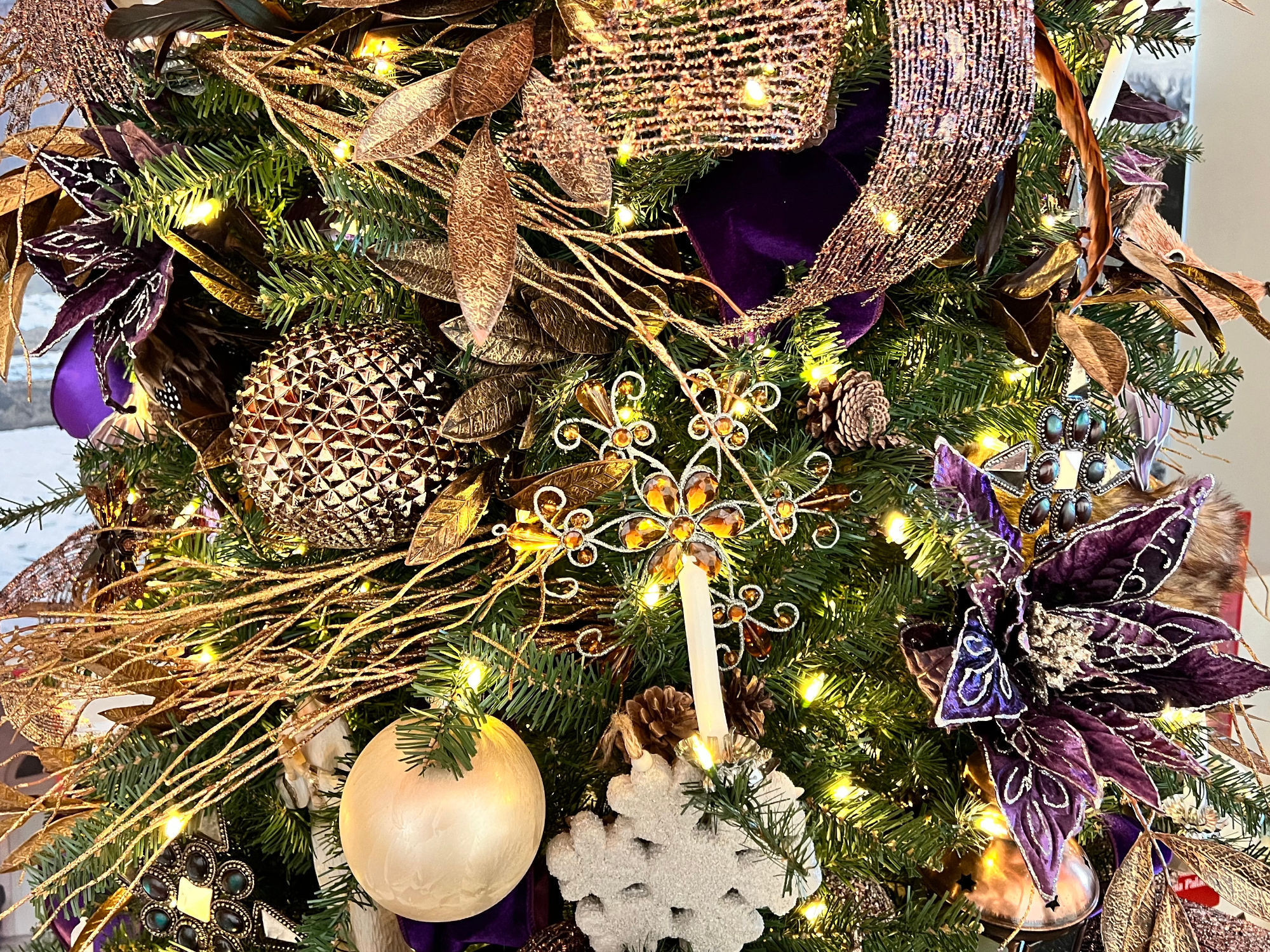
Culture TripHow To Celebrate Christmas In Belgium
As a predominantly Christian society until fairly recently, Belgium embraced Christmas centuries ago as its single most important holiday. And though the religious connotation has waned significantly, the small country still carries a torch for Christmas and all that it entails. Cozy villages built out of wooden chalets and a family-centered Christmas Eve around an overflowing table are traditions dear to many a Belgian heart.But First, A Second Santa
Belgian and Dutch kids are lucky to have Sinterklaas or Saint Nicholas, a kind of second Santa, show up from Spain twenty days before the actual one makes his way over from the North Pole. After putting out their shoes filled with carrots (for the Sint’s horse), cookies and other treats (for the Sint and his helper Black Peter) the night before, children that have been good throughout the year are greeted on the 6th of December with presents, speculoos and chocolate figurines. Legend has it that the gentle man with the long white beard and impressive burgundy robes visits all the houses of the Lower Countries in one single night. In Belgium, little ones who want to double their booty can write a letter to the Sint via the actual mail and get a present and letter back. No stamp needed as long as you get the Holy Man’s address right: Sinterklaas, Spain Street, 0621 Heaven.Christmas Villages Galore
Most important in the run-up to Belgian Christmas are the traditional markets. According to the Belgian recipe, these are authentic villages that radiate charm with thousands of fairy lights and wooden booths serving artisanal treats. Your chances of seeing the biggest Christmas tree in the land are guaranteed at Brussels’ Winter Wonders, one of the most visited markets of all that lasts the entire month of December and hosts tons of side activities. You’ll find the most mammoth of christmas trees on the Grand-Place, along with a stunning light-and-sound show. Other popular markets are Leuven, Antwerp and Liège, who all have their own signature atmosphere. One thing they all have in common are the food and drinks: gluhwein, jenever (or ‘Flemish gin’) and hot chocolate to keep the insides warm and waffles, pancakes and smoutebollen (deep fried sweet dumplings) to keep the belly content. Skating rinks and ferris wheels are usually around to up the entertainment and kiddie fun even more.The Queen of Belgian Holidays: Christmas Eve
When Christmas Eve rolls around, Belgians huddle up with the family for a large communal meal and the unwrapping of the gifts underneath the tree. It’s an intimate and cozy occasion that reflects just how important family is to the average Belgian. The preparation that goes into the dinner may not be quite up to the level of North America’s famous Thanksgiving turkey, but it certainly comes close. Our guide to Belgian Christmas foods gives you the lowdown on the entire meal. Post-dinner bliss is assured by finally opening the presents that have been ogled for weeks and often there will be a round of board games as well. Some families go to Midnight Mass service, though this tradition has dwindled over the past couple of decades as the non-religious part of the population grows. Belgians that do make it to church that evening have a big chance of running into a lifesize nativity scene on their village square, often with a real donkey and a sheep, to the delight of Belgian children all around.Sleeping in on Christmas Day
You wouldn’t guess it looking at the Germans’ reasonably put-together neighbors, but Belgians are the second-to-last worldwide to rise on Christmas Day, the New York Times reported last year. Trailing Brazilians by a couple of minutes, Belgians on average get up a little after 9am. Might the previous night’s gourmet extravaganza have something to do with it? Or perhaps the Midnight Mass? Whichever the answer, it’s a fact that Christmas Day in Belgium is generally a day of relaxation, of having a generous Sunday breakfast and of visiting old friends and distant family members you didn’t get a chance to see the day before. To most it’s important, yet nowhere near as important as the evening of December 24th, the Belgian holiday extraordinaire.

World Holiday TraditionsHoliday Traditions of Belgium
In Belgium, there are actually two Santa Claus figures. For the Dutch-speaking community, there's Sinterklaas, or St. Nicholas, and for the French-speaking community, there's Pere Noel, or Santa Claus.St. Nicholas brings children presents on December 6th, St. Nicholas's Day.
The night before, children leave their shoes in front of the fireplace, along with a gift for St. Nicholas, his horse, and his mischievous helper, Zwarte Piet, or Black Peter. Some of the gifts left for St. Nicholas include tangerines, gingerbread, chocolate, and mokjes, or cookies in the shape of letters.During the night, St. Nicholas arrives on the rooftop on his horse with his helpers. If the children have been good, Black Peter climbs down the chimney and leaves them presents in and around their shoes. If the children have been bad, he leaves sticks instead.
Belgians also celebrate Advent, which is the period of four Sundays before Christmas celebrating the coming of Jesus.
Advent wreaths and crowns are made from fir or leylandii greenery, with four candles, each candle lit represents a week counting down to Christmas.Belgians decorate their towns, homes, and Christmas trees with lights, baubles, garlands, reindeer, even even likenesses of St. Nick himself. Nativity scenes can be found next to the tree. Life-size nativities may be found in the garden. Some churches even have a nativity with real animals!
On Christmas Eve, a special meal is eaten.
It begins with a drink and nibbles, such as crisps, mini-pizzas, or soup, followed by a starter course like seafood, and then a main course of game, like stuffed turkey or chicken. For dessert, there's the traditional Christmas Log, made of sponge roll layered with chocolate butter cream made to resemble a yule log. Christmas presents are placed underneath the tree to be opened in the morning. In Walloon districts, a special sweet bread called cougnou, made in the shape of baby Jesus, is eaten for Christmas breakfast.On New Year's Eve, another large meal is eaten, and even more presents are exchanged.
They countdown to the new year, and wish each other the best for the coming year, and reign in the new year with fireworks and celebration. On New Year's Day, children read their New Years Letters for their parents.On the 6th of January, Belgians celebrate Epiphany.
Children dress as the three magi and go door-to-door singing songs, and the homeowner's give them money or sweets. One tradition is the Three Wise Men Pie called the Galette des rots, decorated with a gold paper crown on top. A bean, or small plastic figure is hidden inside, and whoever finds it gets to wear the crown, and becomes the king or queen for the day.

Culture TripBelgium’s Christmas Markets
Belgium is tailor-made for Christmas celebrations, with its chocolate-box, medieval towns and historic city centres hosting some of the world’s most photogenic Christmas markets. Here are some not to miss on a festive break.Belgium crams many identities into its small landmass, with two distinct regions and three (official) languages. So, the country has a lot to offer when it comes to representing various Christmas cultures. Each season, Belgium hosts Christmas markets presenting all sorts of French, Dutch and German artisan goods, plus delicious snacks and drinks, live entertainment and child-friendly activities. From big city markets in Brussels and Antwerp, to smaller ones such as the Ypres Christmas Market, Namur Christmas Market and Mechelen Christmas Market, Belgium has plenty going on each December.
- Bruges Christmas Market
For six weeks from mid-November until early January, this romantic, medieval city throws itself into the Christmas spirit.- Brussels Christmas Market
Makes up a large area of the cobbled city center and is one of the largest Christmas markets in the world.- Winterland Hasselt
Hasselt has been called the most sociable city in Flanders, so you can expect extra fun at this Christmas market that’s part of a larger Winterland Festival (from late November to early January).- Ghent Christmas Market
As the capital of East Flanders and one of the oldest cities in Belgium, Ghent is known for its enchanting squares and medieval architecture, making it an extra-magical place to soak up the holiday spirit.- Antwerp Christmas Market
From early December to early January, the historic port city of Antwerp holds an annual Christmas market that’s integral to the bigger Winter in Antwerp festival, which puts on gospel choir and classical concerts. This is the place to do your Christmas shopping, from 100 stalls adorned with festive Christmas lights and music- Leuven Christmas Market
Leuven was one of the largest cities in Europe in the 14th century thanks to its cloth-weaving industry. For a few weeks each December, you can stroll among 170 stalls selling ornaments, decorations and crafts (look for the special guest nation chosen each year), as well as snacks and hot drinks.- Liege Christmas Market
Time your visit to the heart of Liege, a friendly French-speaking city in the southern region of Wallonia, during the winter holidays, when you’ll experience what’s considered to be the oldest Christmas market in Belgium. More than 200 stalls take up space on a series of streets and alleys- Charleroi Christmas Market
The largest city in Wallonia doesn’t get the tourist crowds of other Belgian cities, but Charleroi offers great museums and a Unesco-listed belfry that regularly chimes in a famous folk song.- Bassenge Christmas Craft Market
This is the most unique experience on this list: an annual Christmas market that takes place in a network of 2,000-year-old limestone caves.- Winter in the Park Ostend
The beachside city along the North Sea transforms into a Christmas wonderland during the annual Winter in Ostend.

whychristmas.comChristmas in Belgium
Children in Belgium believe that 'Sinterklaas/St. Niklaas' (Flemish) or 'Saint Nicholas' (Walloon) brings them presents on December 5th and 6th, St. Nicholas' Eve and St. Nicholas' Day.Children put their shoes in front of the fireplace, together something for Sinterklaas like a drawing or biscuits; they might also leave a carrot for Sinterklass's horse and something for Zwarte Piet/Sooty Piet/Roetpiet (Black Peter/Sooty Peter/Chimney Peter, Sinterklass's assistant). Then in the night, Sinterklaas arrives on the roof on his horse with Piet. Piet climbs down the chimney and leaves the presents in and around the shoes. Sinterklaas has a book in which he keeps all the names of the children and it tells if they've been bad or good. Children are told that if they've been bad, Piet will put you in his sack and take you back to Spain! Traditional foods that are left for Sinterklaas include tangerines, gingerbread, chocolate and 'mokjes' (cookies made in the shapes of letters. There are lots of songs that children sing about Sinterklaas. Different regions of Belgium have different customs and traditions about St. Nicholas.
The visit of Sinkerlass is a separate occasion to Christmas. Christmas is a more religious festival.
In Belgium there are three official languages, Dutch (a Belgium version of Dutch is known as Flemish, this is mainly spoken in the northern area of Belgium called Flanders), French (mainly spoken in the southern Walloon Region) and German (spoken by about 1% of Belgiums in the east of the country).
In Belgium Dutch/Flemish Happy/Merry Christmas is 'Vrolijk Kerstfeest', French it's 'Joyeux Noël', in German it's 'Frohe Weihnachten' and in the Walloon language (spoken by some people in the Walloon Region) it's 'djoyeus Noye'. Happy/Merry Christmas in lots more languages.
On Christmas Eve ('Kerstavond' in Flemish and 'le reveillion de Noël' in Walloon), a special meal is eaten by most families. It starts with a drink (aperitif) and 'nibbles', followed by a starter course such as sea-food, and then stuffed turkey. The dessert is 'Kerststronk' (Flemish) or 'la bûche de Noël' (Walloon) a chocolate Christmas Log made of sponge roll layered with cream. The outside is covered with chocolate butter cream and made to resemble a bark-covered log.
Some people celebrate Advent and have Advent Wreaths/Crowns made from fir or leylandii greenery. The wreaths have four candles and a candle is lit each week counting down to Christmas. These are very popular in Elementary/Primary Schools where an Advent song is sung when the candles are lit. Lots of children also have paper Advent Calendars with chocolate behind the doors for each day!
In the weeks before Christmas, people also like to go to Christmas Markets. You might spot Santa Claus at the market! People go to buy Christmas presents, decorations and food. You can also drink jenever (gin) or Gluhwein (hot wine) and eat some Smoutebollen/oliebollen (deep fried sweet dumplings) are also very popular. Going ice skating with friends is also something which is very common.
At Christmas parties at schools, it's common to buy a small gift which can be for anyone. A game is played to give out the presents. A very popular one is putting on some music and passing the parcel around everyone sitting in a circle. When the music stops, the one who holds the parcel, gets to keep the present. That's why the present should be something that anyone would like!
Most people will have a Christmas Tree (real or fake!) decorated with lights, baubles, garlands and a star on the top.
Next to the tree, many people will have a nativity scene. Some people even have a life-size one in their gardens! In most villages, there are big 'real' scenes next to the church with real animals (donkey, sheep, ox) and non-stop choir music playing. Some people also decorate the outside of their house with lights, or reindeer, or a Santa climbing up the roof (that's very popular).
On Christmas Eve, people normally celebrate with their close family and keep it small and cosy. The main meal is eaten on Christmas Eve. You might start the evening with small things like crisps, mini-pizzas, etc., or have a starter like soup. For the main course popular dishes include game or seafood, but turkey or chicken are also popular. But whatever you have, there's always some potato croquettes! Ice-cream cake is a very popular dessert.
Small family Christmas presents are also given at Christmas too, where they are put under the tree. They are opened on Christmas Eve. People also like to listen to Christmas music on the radio. Some people also go a Midnight Mass service
The traditional Christmas breakfast is the same as the normal Sunday breakfast eaten throughout the year. This is freshly baked crusty rolls (bakeries do their best trade on Sundays in the Flanders region) with butter & cold meats and/or jam, followed by pastries (like Danish pastries) called 'koffiekoek(en)' (meaning coffee cake(s) as they are normal eaten with a cup of coffee!). In Walloon districts (the south of Belgium), a special sweet bread called 'cougnou' or 'cougnolle' made in a shape that is supposed to be like baby Jesus is eaten for Christmas breakfast.
On Christmas day itself people visit friends or distant relatives.
Movies like Home Alone! and Disney films are always shown on the TV as is the Phantom of the Opera.
New Year's Eve and New Year are also very big holidays in Belgium. Many families eat another large meal together and sometimes have even more presents! At midnight people countdown to the new year and give everybody 3 kisses and wish them the best for the coming year. Having fireworks is also a very popular way to mark the new year. Some people have parties that last until the next morning!
On New Year's Day, people often visit friends and family. Children (up to about the age of 12) also read their 'New Years letters' for their Mother/Godmother. The letters are written at school and are done in your best handwriting and put in beautiful envelopes.
On the 6th of January, people celebrate Epiphany and the three wise men. Children dress up as the three wise men and go from door to door to sing songs and people give them money or sweets, kind of like Trick or Treating on Halloween. One of the songs goes:
3 koningen, 3 koningen
Geef mij een nieuwe hoed
Mijnen oude is versleten
Mijn moeder mag het niet weten
Mijn vader heeft het geld
Op de rooster geteld!
(3 wise men,
give me a new hat,
my old one is worn,
my mother cannot know,
my father has counted the money
on the grid!)There is also a tradition that people make a 'Three Wise Men Pie' or bread called the 'galette des rois' which is decorated with a gold paper crown on the top. A 'fève' (bean) would be hidden in the pie or bread (now it's often a small plastic figure, although some bakers advertise that 'gold' has been baked in the cake!). Whoever finds the fève would be the king or queen for the day and wears the crown!
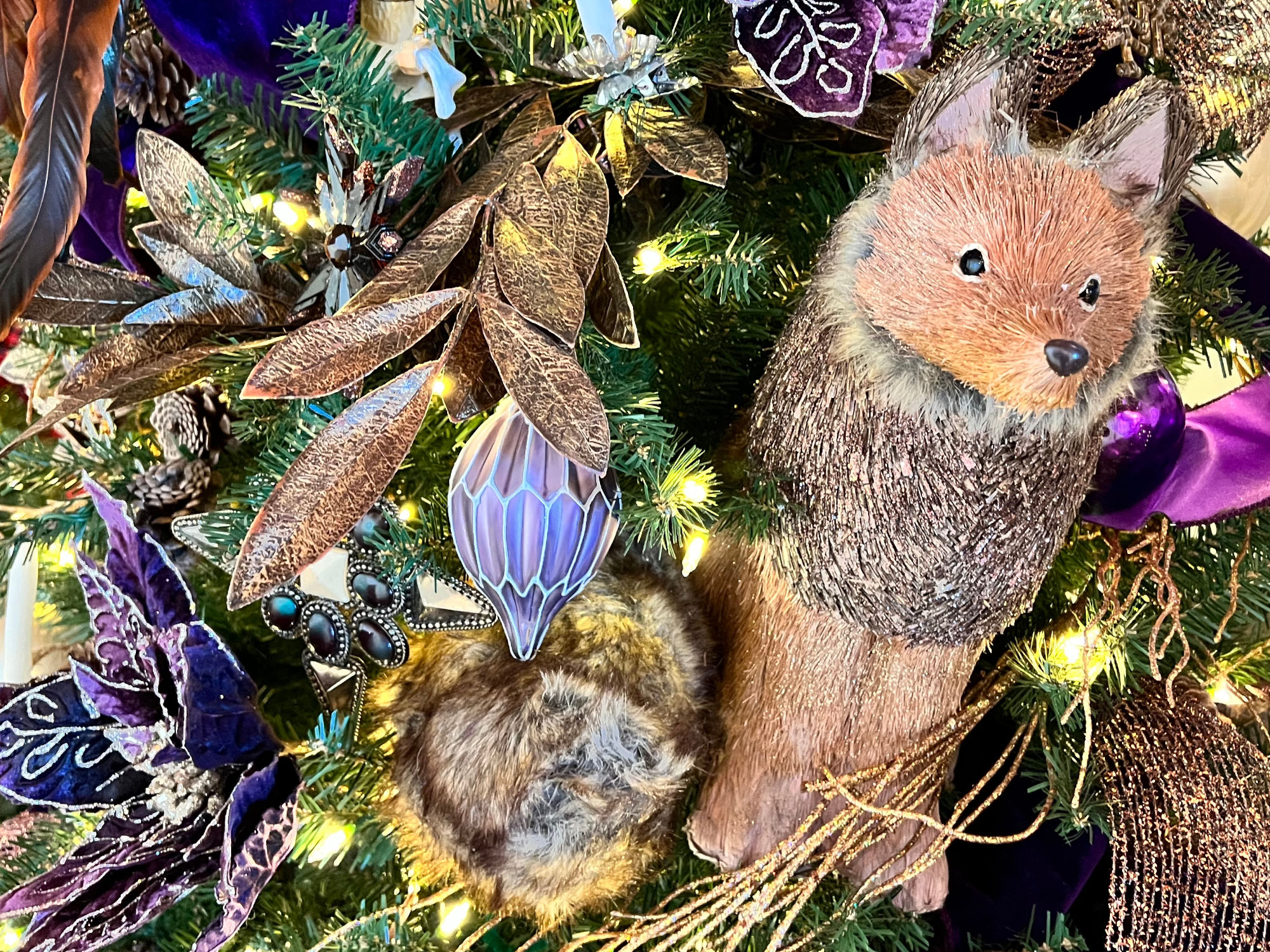
RedditWe need to make a project about Christmas in another country for school, and we had to choose at random. My team needs to make one about Belgium, and im wondering if you can help by telling me about:
Traditional foods for ChristmasIf the way you celebrate Christmas in your country is a bit different from others
Maybe some Belgian carrols aswell
Im hesitant to use information from other sites, because they might be inaccurate, or reffer to one of the 3 main populations in Belgium
- An absolute classic dessert is the 'kerstbuche' which is a relatively plain sponge cake with crème au beurre, rolled and decorated to resemble a wooden log. Used to be only vanilla, chocolate, or coffee flavor, but nowadays you get more exotic flavors too. The old timey ones will have little (inedible) plastic decorations of xmas trees, little reindeer, maybe a Santa, stuff like that. The REAL old timey ones will have a sugar 'kinneke Jezus' (baby Jesus). I don't think anybody likes the taste or texture of those, but it is considered an honor to get the slice with the kinneke (usually it's a child who gets it).
- Typical in my family is gourmet. You place a hot plate in the middle of the table and everyone cooks small slices of meat on it, vegetables and cheese. Sidedishes are an abundance of vegetables, salads, pasta, croquettes or fries, a lot of different sauces and as dessert icecream or tiramisu or chocolate mousse or all 3. The leftovers are enough for at least 3 more parties.
Before you eat you first have a glass of cava or wine (or virgin cocktails for the drivers). With that drink you serve of course appetisers such as tiny toast, chicken wings, mozzarella balls with cherry tomatoes, etc.
Basically by the time you go home you are stuffed.
- Belgians put a tree in their home, they decorate with lights, balls and various ornaments. Belgians call that a Christmas tree. Christmas is usually celebrated at home, often with extended family.
- A big hit for the hollidays when I grew up was "Ossetong in Madeira-saus" with croquettes. Its basicly a cow- or veal-tongue in a type of tomato-sauce with mushrooms. A great first course is "Vol-au-vent", a chicken (and meatball)-ragout served in a small puff pastry (a "Videke")
Some work in advance is needed but worth it, Plus if there are a lot of leftovers, its handy to freeze in portions for later. As dessert, its usually ice cream cake
- In the south of Belgium we have Cougnou. It's not really a part of the Christmas meal, more of a Christmas time snack. It's a sweet brioche bread stuffed with pearl sugar, raisins or sometimes chocolate chips, and it's supposed to be (very loosely) the shape of a swaddled baby Jesus.
We usually celebrate on Christmas Eve and have a lighter Christmas lunch on the 25th.
We do exchange presents but we don't have Santa in Belgium, presents at Christmas are from family members. For children the main celebration is on Saint Nicholas's day (6th of december) when the Saint comes on his donkey to bring presents.
He often also brings tangerines, and big Speculoos cookies in the shape of Saint Nicholas are sold around that time.
- Family gets together, everybody drinks a bit too much, drunken uncle tells not so funny stories, eventually we talk about politics and everyone leaves disgruntled. It's a lovely ritual because there is a lot of food so we return the next year. Or maybe thats just us?
- In belgium we traditionally celebrate St-Nicolas/Sinterklass which is a germanic tradition, children leave some speculoos, milk and a carrot the 5 december evening and the 6, Saint-Nicolas and his donkey in exchange of the food leave some present, sweets and oranges.
In Wallonia we also eat "Cougnou" all december which is a brioche in form of Jesus with a sugar also in form of Jesus on top.
But today like many west european country the culture were a lot influenced by usa christmas culture, so we also have all the other traditions like santa. Every family have differents traditions, some don't celebrate St-Nicolas or Santa but somes family celebrate both.
- Either foie gras or smoked salmon tends to be very common as an entree.
The others seem to say stuffed turkey is traditional but I've never actually had it. We ate lamb leg when going to my grandmother's because she insisted on it, but when other people were hosting it tended to be game of some sort. With, of course, cranberry sauce.
Dessert is the "Christmas log", which can be cake but is usually frozen.
I don't think we really have a Belgian-specific Christmas carol?
I think we celebrate Christmas a lot like our neighbours. We celebrate lots of holidays mostly the same way as the Dutch or the French, with some small variations thrown in.
Not sure which country you're from, so I'll also add just in case that we celebrate on Christmas Eve. Christmas Day itself is more to visit family and get some coffee or pastries together, but not really a full feast.





While in Brussels, Belgium to attend a NATO Summit Meeting, President Reagan meets with King Baudouin at Laeken Palace.
Reagan's Daily DiaryThursday, March 3, 1988
Up at 7:30-brkfst. in bed then up for a 9:15 brf. by Senior advisors. And on our way to N.A.T.O. H.Q. Working session began at 10 A.M. We broke at 11 for press session. I made a statement then turned it over to George S. for Q’s. Then I had a brief meeting 1 on 1 with King Baudoin. He’s a most gracious & unassuming man.We had also a private bilateral with Margaret Thatcher, and one with P.M. (Belgium) etc.
Finally a farewell to our employees at N.A.T.O.-then a farewell to several hundred Americans at airport & on board A.F.1 for 8 hr. & 20 min. ride home.
Nancy met me on lawn & here I am. Good news-Jim Wrights Contra plan was defeated while we were landing.
Key Facts
- President Reagan attends the second day of summit meetings for N.A.T.O.
- President Reagan meets with King Baudouin of Belgium.
- The U.S. House of Representatives rejects a package of $30 million in non-lethal aid for the Nicaraguan Contras.
Ronald ReaganRemarks to United States Armed Forces at a Departure Ceremony in Brussels, BelgiumMarch 3, 1988
Thank you all for coming out here on what is not exactly a sunshiny day. Could I just tell you, you've made me very proud by coming out this way to see me off. But you've made me even more proud by the fact of what you represent. You are the largest American delegation in Europe. And you're here serving our country, some of you with regard to the European Community, some with regard to the alliance, and then, many of you are here also just representing our government and certainly the military. I am so proud of the detachment that is here assigned to the NATO alliance and that is defending America as well as the peace of the world.
Well, God bless you all. And you know what? I'm going to issue an Executive order: I'm going to get in the airplane, and you get out of here and get out of this nasty weather before you catch cold. All right. Thank you all. God bless you all.
NOTEThe President spoke at 3:49 p.m. at Zaventem Airport in Brussels, Belgium. Following his remarks, he returned to Washington, DC.
WIKIPEDIAThe Kingdom of Belgium
A country in Northwestern Europe. The country is bordered by the Netherlands to the north, Germany to the east, Luxembourg to the southeast, France to the southwest, and the North Sea to the northwest. It covers an area of 30,689 km2 (11,849 sq mi) and has a population of more than 11.5 million, making it the 22nd most densely populated country in the world and the 6th most densely populated country in Europe, with a density of 376/km2 (970/sq mi). Belgium is part of an area known as the Low Countries, historically a somewhat larger region than the Benelux group of states, as it also included parts of northern France. The capital and largest metropolitan region is Brussels; other major cities are Antwerp, Ghent, Charleroi, Liège, Bruges, Namur, and Leuven.Belgium is a sovereign state and a federal constitutional monarchy with a parliamentary system. Its institutional organization is complex and is structured on both regional and linguistic grounds. It is divided into three highly autonomous regions: the Flemish Region (Flanders) in the north, the Walloon Region (Wallonia) in the south, and the Brussels-Capital Region. Brussels is the smallest and most densely populated region, as well as the richest region in terms of GDP per capita. Belgium is also home to two main linguistic communities: the Flemish Community, which constitutes about 60 percent of the population, and the French Community, which constitutes about 40 percent of the population. A small German-speaking Community, making up around one percent of the population, exists in the East Cantons. The Brussels-Capital Region is officially bilingual in French and Dutch, although French is the majority language and lingua franca. Belgium's linguistic diversity and related political conflicts are reflected in its complex system of governance, made up of six different governments.
Since the Middle Ages, Belgium's central location has meant that the area has been relatively prosperous, connected commercially and politically to its bigger neighbors. The country as it exists today was established following the 1830 Belgian Revolution, when it seceded from the United Kingdom of the Netherlands, which had incorporated the Southern Netherlands (which comprised most of modern-day Belgium) after the Congress of Vienna in 1815. The name chosen for the new state is derived from the Latin word Belgium, used in Julius Caesar's "Gallic Wars", to describe a nearby region in the period around 55 BCE. Belgium has also been the battleground of European powers, earning the moniker "the Battlefield of Europe", a reputation reinforced in the 20th century by both world wars.
Belgium participated in the Industrial Revolution, and during the course of the 20th century, possessed a number of colonies in Africa. Between 1885 and 1908, the Congo Free State, which was privately owned by King Leopold II of Belgium, was characterized by widespread atrocities and disease; amid public outcry in Europe, Belgium annexed the territory as a colony. The Belgian colonial empire gained independence between 1960 and 1962. The second half of the 20th century was marked by rising tensions between the Dutch-speaking and the French-speaking citizens fueled by differences in language and culture and the unequal economic development of Flanders and Wallonia. This continuing antagonism has led to several far-reaching state reforms, resulting in the transition from a unitary to a federal arrangement between 1970 and 1993. Despite the reforms, tensions have persisted: there is particularly significant separatist sentiment among the Flemish, language laws such as the municipalities with language facilities have been the source of much controversy, and the government formation period following the 2010 federal election set the world record at 589 days. Unemployment in Wallonia is more than double that of Flanders, which boomed after the Second World War.
Belgium is a developed country, with an advanced high-income economy. The country is one of the six founding members of the European Union, and its capital, Brussels, is also the de facto capital of the European Union itself, hosting the official seats of the European Commission, the Council of the European Union, and the European Council, as well as one of two seats of the European Parliament (the other being Strasbourg). Belgium is also a founding member of the Eurozone, NATO, OECD, and WTO, and a part of the trilateral Benelux Union and the Schengen Area. Brussels also hosts the headquarters of many major international organizations, such as NATO.
- Belgium shares borders with France, Germany, Luxembourg, and the Netherlands.
- Its land area is 30,446 square kilometers.
- Belgium has three main geographical regions; the coastal plain in the northwest and the central plateau both belong to the Anglo-Belgian Basin, and the Ardennes uplands in the southeast to the Hercynian orogenic belt. The Paris Basin reaches a small fourth area at Belgium's southernmost tip, Belgian Lorraine.
- The climate is maritime temperate with significant precipitation in all seasons, like most of northwest Europe.
- The average temperature is lowest in January at 37 degrees and highest in July at 64 degrees.
The territory of Belgium is divided into three Regions, two of which, the Flemish Region and Walloon Region, are in turn subdivided into provinces; the third Region, the Brussels Capital Region, is neither a province nor a part of a province.
- Belgium is a constitutional, popular monarchy and a federal parliamentary democracy. The bicameral federal parliament is composed of a Senate and a Chamber of Representatives. The former is made up of 50 senators appointed by the parliaments of the communities and regions and 10 co-opted senators. Prior to 2014, most of the Senate's members were directly elected. The Chamber's 150 representatives are elected under a proportional voting system from 11 electoral districts. Belgium has compulsory voting and thus maintains one of the highest rates of voter turnout in the world.
- The King (currently Philippe) is the head of state, though with limited prerogatives. He appoints ministers, including a Prime Minister, that have the confidence of the Chamber of Representatives to form the federal government. The Council of Ministers is composed of no more than fifteen members. With the possible exception of the Prime Minister, the Council of Ministers is composed of an equal number of Dutch-speaking members and French-speaking members. The judicial system is based on civil law and originates from the Napoleonic code. The Court of Cassation is the court of last resort, with the courts of appeal one level below.
- Because of its location at the crossroads of Western Europe, Belgium has historically been the route of invading armies from its larger neighbors. With virtually defenseless borders, Belgium has traditionally sought to avoid domination by the more powerful nations which surround it through a policy of mediation. The Belgians have been strong advocates of European integration. The headquarters of NATO and of several of the institutions of the European Union are located in Belgium.
- Belgium's strongly globalized economy and its transport infrastructure are integrated with the rest of Europe. Its location at the heart of a highly industrialized region helped make it the world's 15th largest trading nation in 2007.
- Belgium experiences some of the most congested traffic in Europe. In 2010, commuters to the cities of Brussels and Antwerp spent respectively 65 and 64 hours a year in traffic jams.
- There is a large economic gap between Flanders and Wallonia. Wallonia was historically wealthy compared to Flanders, mostly due to its heavy industries, but the decline of the steel industry post-World War II led to the region's rapid decline, whereas Flanders rose swiftly. Since then, Flanders has been prosperous, among the wealthiest regions in Europe, whereas Wallonia has been languishing.
- The 22nd most densely populated country in the world, and the 6th most densely populated country in Europe. As of 1 January 2020, the total population of Belgium according to its population register was 11,492,641. The most densely populated province is Antwerp, the least densely populated province is Luxembourg.
- Belgium has three official languages: Dutch, French and German. The total number of native Dutch speakers is estimated to be about 6.23 million, concentrated in the northern Flanders region, while native French speakers number 3.32 million in Wallonia and an estimated 870,000 (or 85%) in the officially bilingual Brussels-Capital Region. The German-speaking Community is made up of 73,000 people in the east of the Walloon Region; around 10,000 German and 60,000 Belgian nationals are speakers of German.
- Belgium officially recognizes three religions: Christianity (Catholic, Protestantism, Orthodox churches and Anglicanism), Islam and Judaism. Catholicism has traditionally been Belgium's majority religion; being especially strong in Flanders.
ChristmasSaint Nicholas Day
Saint Nicholas Day (Dutch: Sinterklaas, French: la Saint-Nicolas) takes place each year on 6 December and is a sort of early Christmas. On the evening of 5 December, before going to bed, children put their shoes by the hearth with water or wine and a carrot for Saint Nicholas' horse or donkey. According to tradition, Saint Nicholas comes at night and travels down the chimney. He then takes the food and water or wine, leaves presents, goes back up, feeds his horse or donkey, and continues on his course. He also knows whether children have been good or bad. This holiday is especially loved by children in Belgium and the Netherlands. Dutch immigrants imported the tradition into the United States, where Saint Nicholas is now known as Santa Claus.
- Belgium is famous for beer, chocolate, waffles and French fries. The national dishes are steak and fries, and mussels with fries. Brands of Belgian chocolate and pralines, like Cote d'Or, Neuhaus, Leonidas and Godiva are famous, as well as independent producers such as Burie and Del Rey in Antwerp and Mary's in Brussels. Belgium produces over 1100 varieties of beer. The Trappist beer of the Abbey of Westvleteren has repeatedly been rated the world's best beer. The biggest brewer in the world by volume is Anheuser-Busch InBev, based in Leuven.
- Association football is the most popular sport in both parts of Belgium; also very popular are cycling, tennis, swimming, judo and basketball. Belgians hold the most Tour de France victories of any country except France.





